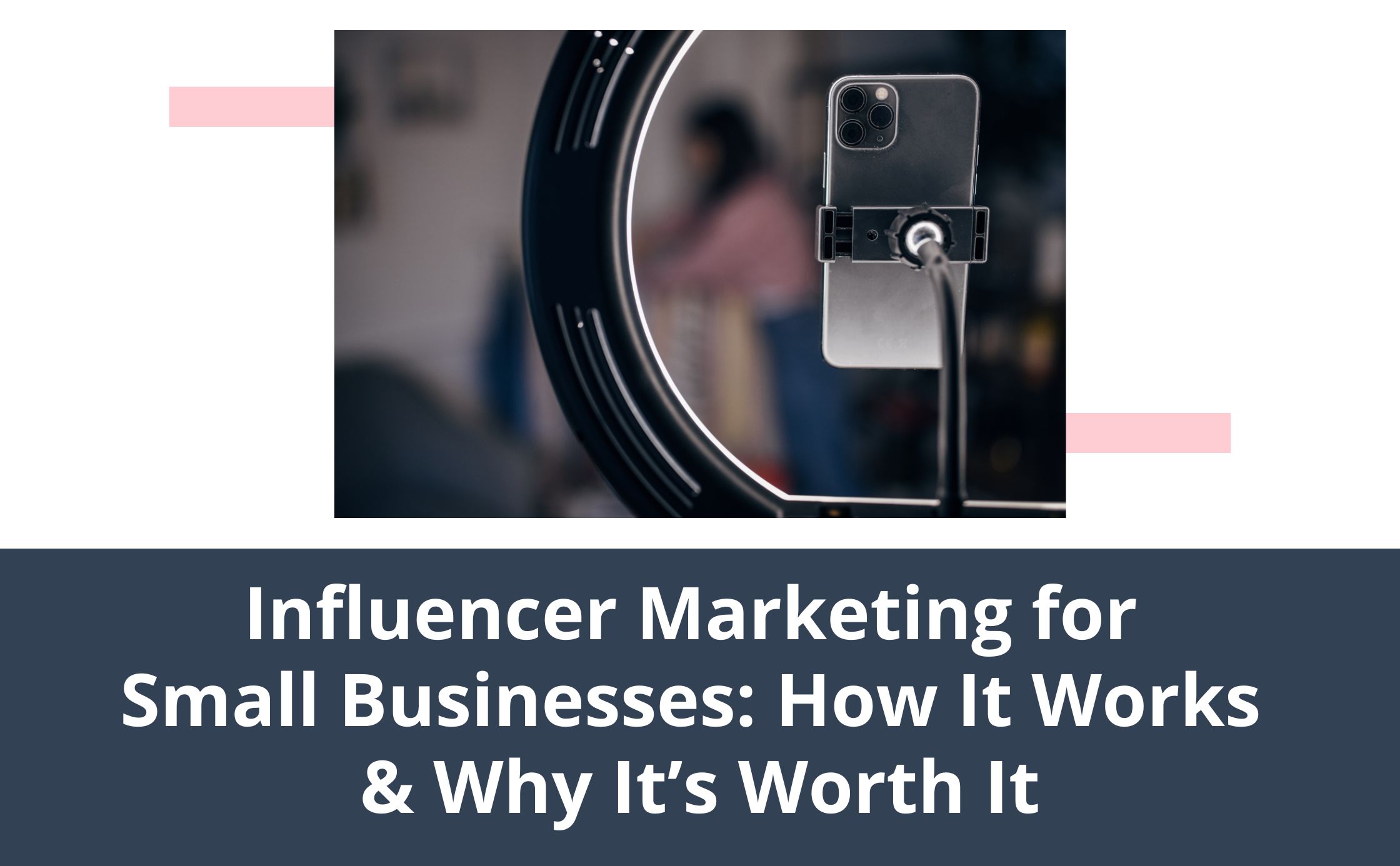Influencer marketing is more than just a buzzy topic. It’s a powerful digital marketing tool that businesses can leverage to enhance their online presence. Influencers completely changed the digital marketing landscape by creating a new way for consumers to discover products, services, and brands. Most influencers have spent years creating relatable content to develop strong connections with a loyal, niche audience. As a small business owner, you can leverage their influence by partnering with them to create content that effectively highlights your products and services.
If you’re new to the world of influencers, here’s everything you need to know about influencer marketing for small businesses.
What is Influencer Marketing?
Influencer marketing is a type of social media marketing where brands and small businesses partner with individuals who have a larger following on a specific social media platform. There are four different types of influencers:
- Nano: Less than 10K followers
- Micro: 10K to 100K followers
- Macro: 100K to 1M
- Mega: 1M+ or more followers
The different tiers of influencers make this marketing tactic more accessible for small businesses with smaller budgets. Nano and micro influencers also tend to have higher engagement rates with smaller, niche audiences.
TikTok, Instagram, and Facebook are the three most popular social media platforms for influencer marketing. However, some influencers also leverage X (formerly Twitter), LinkedIn, and even Pinterest.
How Influencer Marketing Works
Influencer marketing works differently from traditional marketing efforts. Instead of using your own business-branded marketing channels, your brand will partner with a specific influencer to bring awareness to your products and services.
Here’s how the process works:
Set Your Goals
Before you can start reaching out to influencers, you’ll want to ensure you have a goal for the marketing campaign. Solidifying your goals will help you find the best influencers for your project and ensure they have the right content creation style you need.
Find the Right Influencer
If you’re new to influencer marketing and have the budget, you may want to consider working with an agency to find and source partnerships. Agencies have preexisting relationships with influencers and can assist with outreach and collaboration.
If you don’t have the budget, you’ll need to conduct your own research and outreach yourself. This can be a time-consuming process, so you’ll want to ensure you track everything effectively in an Excel spreadsheet. You can also consider investing in a platform like Upfluence or Traackr.
Deliverables and Compensation
Once you connect with a few influencers you want to work with, you’ll need to negotiate compensation, expectations, and discuss deliverables. It’s always best to have a contractual agreement for the partnership to ensure everyone is on the same page.
Develop the Campaign
Once the contract is finalized, the influencer will put together the content and assets for the partnership. Depending on what’s agreed on, they might send you the content to review before it’s posted. Most influencers will create their own content to ensure it complements their content creation style and doesn’t feel too forced.
Monitor Results
Once the content is posted, you’ll want to monitor the results. If you provide the influencer with a special discount code or UTM, you’ll want to monitor the success through these assets. You may also ask the influencer to send over an overview of impressions and engagement metrics.
At the end of the campaign, you’ll want to assess the ROI to determine if influencer marketing for small businesses is a tactic you want to continue.
Benefits of Influencer Marketing
Influencer marketing is completely changing the way consumers interact with brands. If you want to continue to grow and scale your business, you’ll want to leverage the power of influencer marketing through content creation. Their influence can help you boost brand visibility and expand to new markets. It can also help you maintain a competitive edge over your competitors.
There are many ways small businesses can benefit from the power of influencer marketing.
Here are five benefits you can look forward to:
- Expand to New Markets: Influencers can help you tap into new markets and build connections with potential prospects. Micro and nano influencers who have a smaller yet niche following. Using their influence over niche audiences can help you grow your business.
- Boost Brand Visibility: Influencer marketing can help you grow your online presence and boost brand visibility. It’s a creative way to tap into new markets using tactics outside of traditional marketing channels.
- Enhance Brand Credibility: Having a popular influencer use your products can help improve credibility and grow your reputation.
- Increase Sales and Profits: The right campaign can help boost sales and profits. If your goal is to drive more sales, consider giving the influencer a special discount code they can share on their platform. This is an effective way to track the results and incentivize shopping on your website.
- Improve Engagement: Influencers develop engaging content that typically has higher conversion rates and better engagement rates than traditional content types. Incorporating this content into your strategy is an effective way to grow your online presence on a specific social media platform and increase likes, saves, and comments on your own social media platforms.
Grow Your Online Presence With Townsquare Interactive
While influencer marketing is growing in popularity, it’s not the only platform you should be leveraging. Developing an SEO, paid media, and organic social media strategy will ensure you have a well-rounded marketing strategy that works to your advantage.
Townsquare Interactive’s business management platform is designed with small businesses in mind. We also offer marketing services that can help you grow your online presence and reach your specific goals. If you aren’t ready to leverage influencer marketing, our team is here to help explore other avenues such as paid media, social media, and web design.

